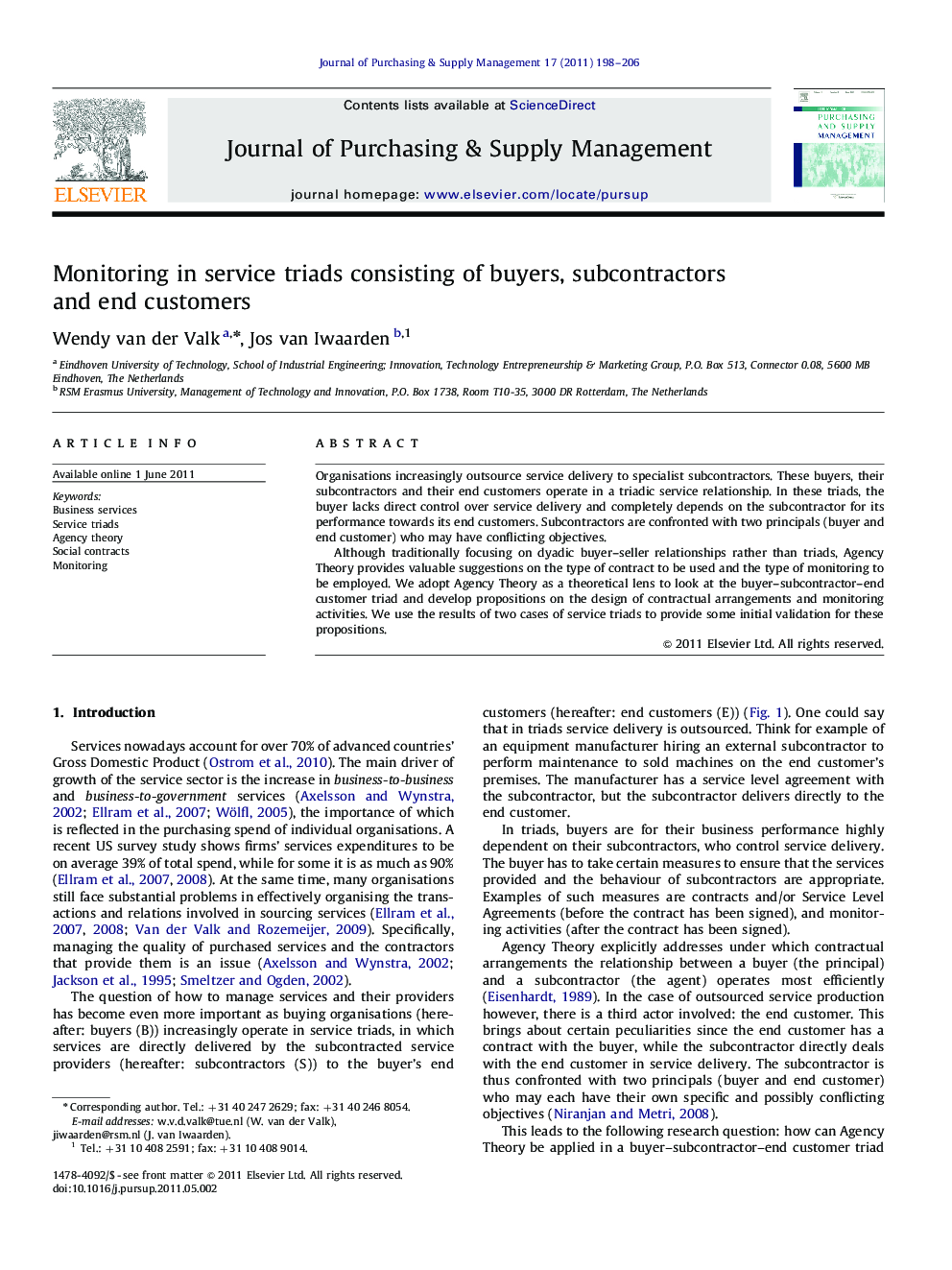| Article ID | Journal | Published Year | Pages | File Type |
|---|---|---|---|---|
| 1020930 | Journal of Purchasing and Supply Management | 2011 | 9 Pages |
Organisations increasingly outsource service delivery to specialist subcontractors. These buyers, their subcontractors and their end customers operate in a triadic service relationship. In these triads, the buyer lacks direct control over service delivery and completely depends on the subcontractor for its performance towards its end customers. Subcontractors are confronted with two principals (buyer and end customer) who may have conflicting objectives.Although traditionally focusing on dyadic buyer–seller relationships rather than triads, Agency Theory provides valuable suggestions on the type of contract to be used and the type of monitoring to be employed. We adopt Agency Theory as a theoretical lens to look at the buyer–subcontractor–end customer triad and develop propositions on the design of contractual arrangements and monitoring activities. We use the results of two cases of service triads to provide some initial validation for these propositions.
► Studies monitoring in triads consisting of buyers, service providers and end customers. ► Uses Agency Theory to derive propositions for the two-principal situation of triads. ► We find that monitoring type (outcome- or behaviour-based) follows contract type. ► The use of social contracts diminishes subcontractor opportunism. ► In triads, legal contracts, monitoring activities and social contracts interact.
